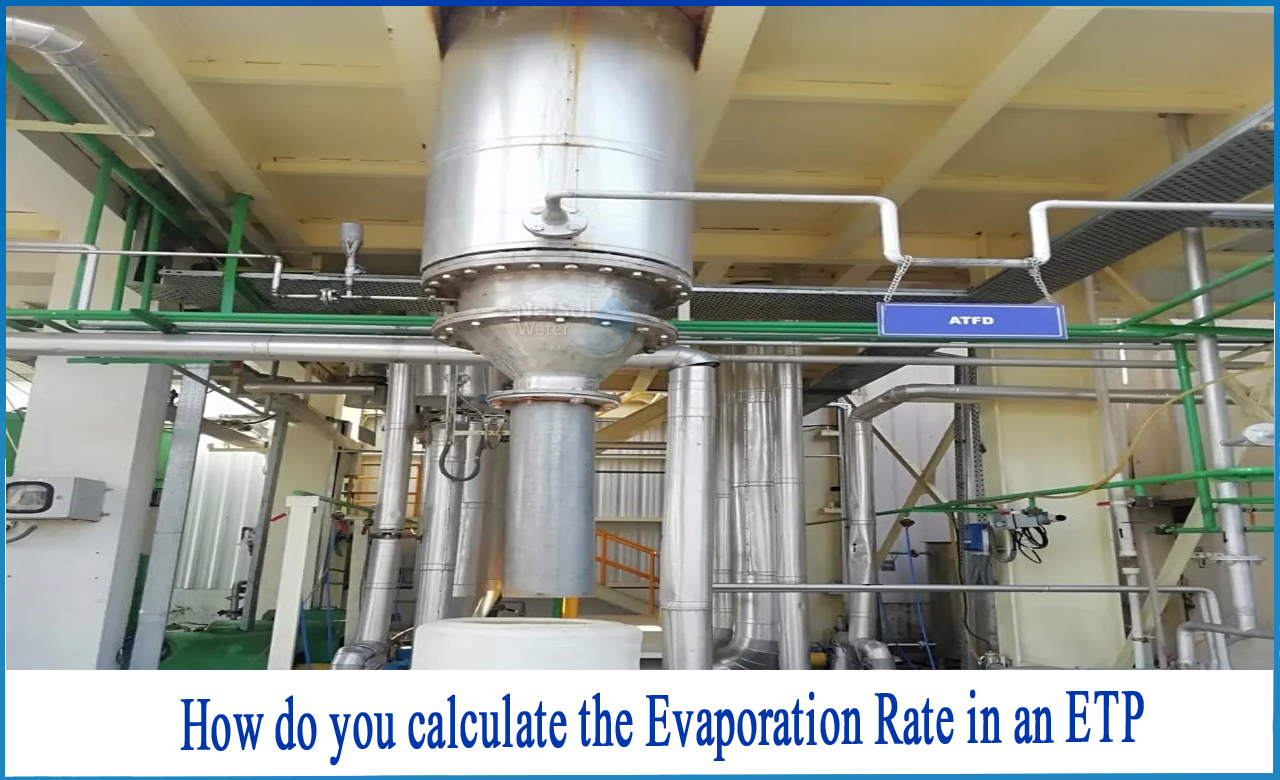Introduction to Evaporators in ETPs
The evaporation principle is used to treat water, waste water, and water-based waste in evaporation units (or evaporators). An aqueous waste with organic and inorganic contaminants at concentrations of less than 100 g/L is the most common liquid treated.
Different types of evaporators can deal with different water treatment issues and function differently. The production capacity ranges from 0.15 to 60 tonnes per day, and all versions can concentrate wastewater as a pump able fluid, easily achieving a concentration of 30% TDS while consuming minimal electricity. Evaporators can also be used to handle pre-concentrated or scaling liquids, as well as concentrated acids and liquids that are particularly corrosive. Heat pumps, hot water or steam, or Mechanical Vapor Recompression (MVR) with natural or forced circulation are all used.
Why are evaporators used? What is the role of evaporators?
Evaporators are used to separate water from a variety of sources, like
a) To recover chemicals and active compounds, diluted galvanic baths are used.
b) Oil emulsions for oil recovery soap and detergent-rich degreasing baths
c) Very corrosive liquids or intense acid baths for developing photographs
d) Saline solutions with a high concentration leachate from landfills and drippings from garbage storage
e) Chemical, cosmetic, and pharmaceutical industry waste fluids and synthesis intermediates.
How do you calculate the Evaporation Rate in an ETP?
When compared to the rate of vaporization of a certain known material, evaporation rate is defined as the rate at which a material vaporizes (or evaporates), meaning it changes from liquid to vapour. This is a ratio; hence it has no units. Evaporation rate is a key component in determining the health and fire hazard attributes of chemicals and other compounds, with a high evaporation rate indicating a high danger of health, fire, and/or explosion.
A material with a rapid evaporation rate generates a vapour quickly, which can be explosive or inhaled by employees.
A: "Fast evaporating" substances have an evaporation rate of 3.0 (three times that of regular butyl acetate), such as acetone (5.6), hexane (8.3), or methyl ethyl ketone or MEK (3.8).
B: "Medium evaporating" substances have an evaporation rate of 0.8 to 3.0, such as ethyl alcohol (1.4) or VM&P naphtha (1.4).
C: "Slow evaporating" substances have an evaporation rate of less than 0.8, such as water (0.3), mineral spirit (0.1), or xylene (0.6).
Calculation of Evaporation Rate in an Effluent Treatment Plant
The Penman formula is used for calculating the evaporation rate in an effluent treatment plant
E= 700Tm/(100-A)+15(T-Td)/(80-T)*(mm day-1)
Where, Tm= T+ 0.006h
h= elevation
T= mean temperature
A= latitude in degrees
Td= mean dew point.
Factors on which evaporation rate depends
1: Concentration of the substance evaporating in the air:If there is already a large concentration of the evaporating substance in the air, the evaporating substance will evaporate more slowly.
2: Concentration of other substances in the air: If the air is already saturated with other compounds, the ability for the substance to evaporate may be reduced.
3: Temperature of the substance:Evaporation will be faster if the substance is hotter.
4: Flow rate of air:This has something to do with the concentration locations. If fresh air is constantly passing over the substance, the concentration of the substance in the air is less likely to rise with time, allowing for rapid evaporation. Furthermore, because molecules in motion have more energy than those at rest, the stronger the air flow, the larger the air molecules' evaporating power.
5: Inter-molecular forces: The more energy required to evaporate the molecules in a liquid or solid state, the stronger the forces holding them together.
What do we offer?
Netsol Water is a renowned producer of water and wastewater treatment plants. Based on client feedback and job quality, we are the most demanding organization in the water industry. We have a reputation for being the top commercial RO plant manufacturer, industrial RO plant manufacturer, sewage treatment plant manufacturer, effluent treatment plant manufacturer, and much more. Aside from that, our USP is 24x7 customer assistance.
For further assistance or product-purchase-related questions, call us at +91-9650608473 or email at enquiry@netsolwater.com.



